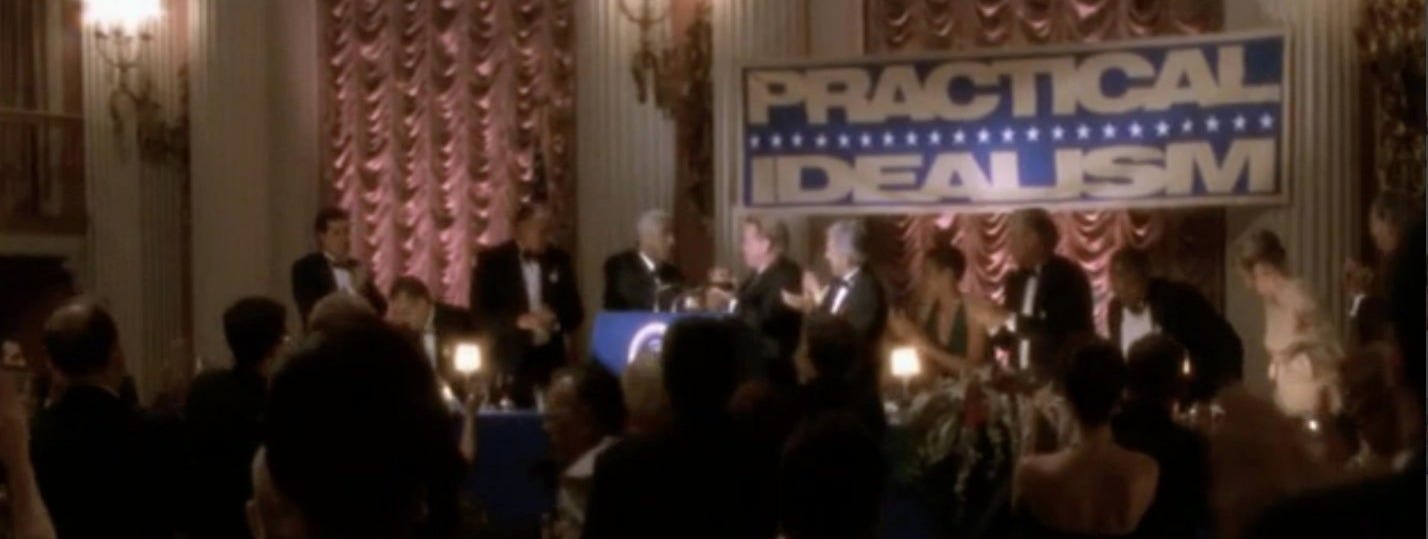The #Resistance Undead
What form will mainstream liberal opposition take during Trump's second term? The early signs are not good.
Since Donald Trump’s victory in November, I’ve frequently wondered what the response of the liberal mainstream would be to his second term — and about the extent it would either mirror or break from the template established by 2017. For several months, there was a certain received wisdom that all of that was finally, and perhaps mercifully, over.
Among other things, this time the Democratic candidate had actually lost the popular vote — under the aegis, no less, of a campaign whose constituent parts were some of the worst impulses of post-Trumpian liberalism. Cable news, one of the principal drivers of those impulses, is hemorrhaging viewers across the board (a collapse that is thoroughly bipartisan, since Fox is losing ground alongside the likes of MSNBC). And, for God’s sake: the leadership of the Democratic Party rolled the dice on a strategy that was in fundamental ways a carbon copy of the one that failed to stop Trump the first time and lost yet again. I’m a fierce critic of the liberal mainstream who has spent an inordinate quantity of time chronicling its sclerotic intransigence, but still figured that time something might actually have to give.
We have, as of yet, no definite sense of what form mainstream resistance to the incoming Trump administration will take or how anti-Trump resistance as a whole may express itself over the next few years. As Zhou Enlai (probably didn’t) say about the French Revolution, it’s still too soon to tell as far as the former is concerned. But based on both the early evidence and existing precedent, I am already fearing the worst.
In a healthy body politic with a left of centre organization able to perform even the basic functions of a political party, repudiation of the kind meted out by Trump in 2016 would have been enough to compel a serious rethink — not only among strategists, apparatchiks, and elected officials but of a significant swathe of rank-and-file liberals as well. This would have been a rethink not simply of brand or messaging, but a thoroughgoing reexamination of core beliefs and assumptions followed by fundamental changes in leadership, policy, and institutional structure.

Instead, we got The Resistance: a mashup of centrist pathologies that mostly processed the trauma of Trump’s victory through different forms of cultural, intellectual, and institutional retrenchment. From the very beginning, it espoused the language of dissent and even radicalism but was profoundly conservative in both analysis and implication. Its heroes and leaders, conveniently enough, were mostly drawn from the very tendency Trumpism had so improbably defeated. And what they called for most of all was a kind of revolutionary normie-ism: a grand, patriotic popular front running from centre left (though “left” is putting it generously) to anti-Trump right whose paradoxical rallying cry was that the uniquely menacing circumstances demanded an establishment-friendly response.
As I argued in a 2020 essay for The Atlantic, the result was a strange double-axel in which both liberalism’s major cultural institutions and the Democratic leadership incessantly declared a state of emergency while continuing to behave in completely orthodox fashion. Thus, amid the constant clarion call that this. was. not. normal. the regular functions of government were mostly maintained, the president’s States of the Union were warmly applauded, his nominees were fast-tracked, his military budgets were approved, and he was even granted new domestic spying powers. Trumpism was, at once, an American Fourth Reich and a reason to keep to doing things in much the same way as before. The permanent state of exception, it seemed, demanded the permanent maintenance of normalcy.
Keep reading with a 7-day free trial
Subscribe to Luke Savage to keep reading this post and get 7 days of free access to the full post archives.


